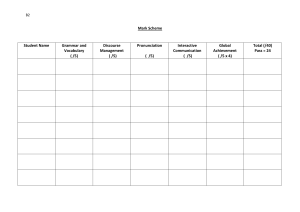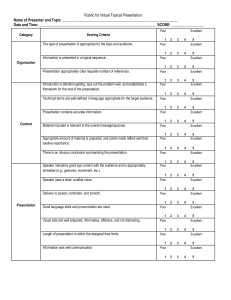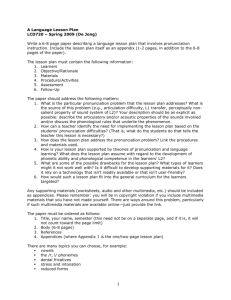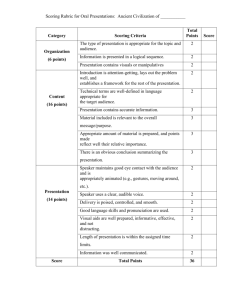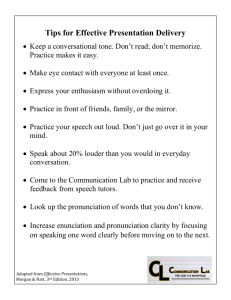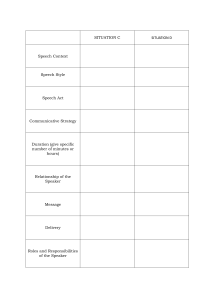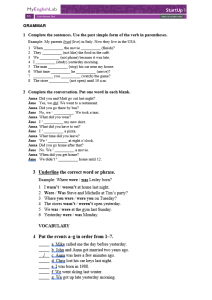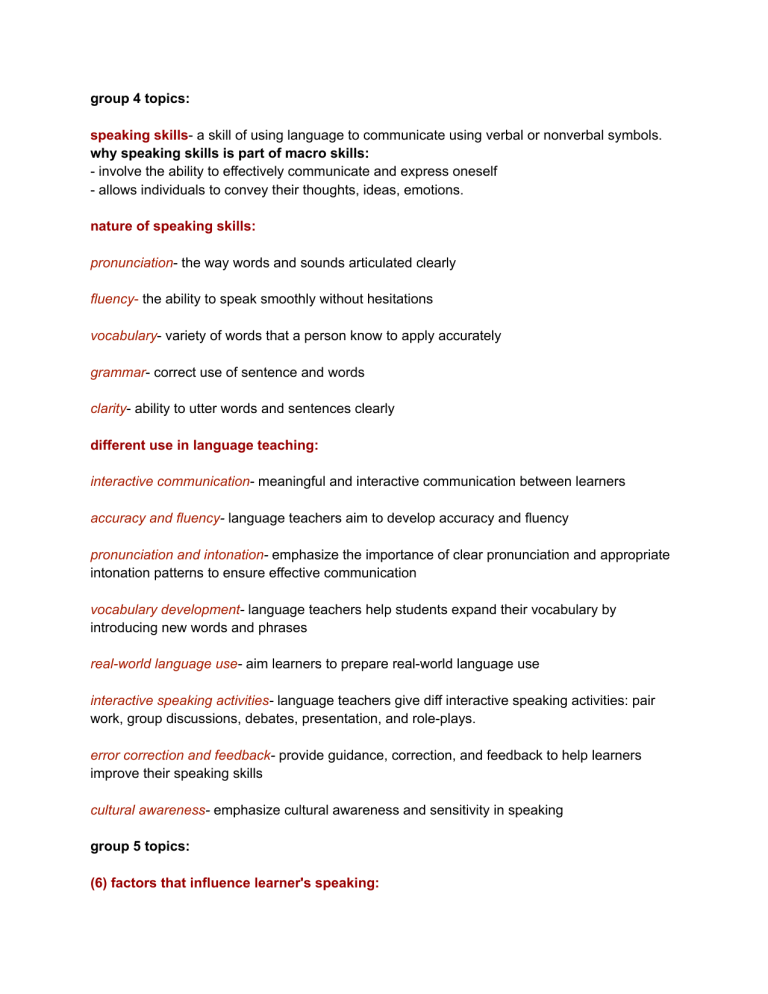
group 4 topics: speaking skills- a skill of using language to communicate using verbal or nonverbal symbols. why speaking skills is part of macro skills: - involve the ability to effectively communicate and express oneself - allows individuals to convey their thoughts, ideas, emotions. nature of speaking skills: pronunciation- the way words and sounds articulated clearly fluency- the ability to speak smoothly without hesitations vocabulary- variety of words that a person know to apply accurately grammar- correct use of sentence and words clarity- ability to utter words and sentences clearly different use in language teaching: interactive communication- meaningful and interactive communication between learners accuracy and fluency- language teachers aim to develop accuracy and fluency pronunciation and intonation- emphasize the importance of clear pronunciation and appropriate intonation patterns to ensure effective communication vocabulary development- language teachers help students expand their vocabulary by introducing new words and phrases real-world language use- aim learners to prepare real-world language use interactive speaking activities- language teachers give diff interactive speaking activities: pair work, group discussions, debates, presentation, and role-plays. error correction and feedback- provide guidance, correction, and feedback to help learners improve their speaking skills cultural awareness- emphasize cultural awareness and sensitivity in speaking group 5 topics: (6) factors that influence learner's speaking: native language- most influential factor, affects learner's pronunciation. age- children under the age of puberty have the ability to maintain perfect or native like pronunciation in a foreign or second language compared to adults. exposure- social environment is important to learners to expose themselves to the target language. innate phonetic ability (phonetic coding ability)- easier for certain individuals to acquire the correct pronunciation in a new language. identity and language ego- influence their motivation and commitment to pronunciation improvement. motivation and concern for good pronunciation- learners will achieve native like pronunciation when their intrinsic motivation is high. speaking task for communicative outcome 5 types: imitative speaking- parrots back or imitate a word, phrase, or sentence. intensive speaking- producing a limit amount of language in a highly control context. responsive speaking- short replies to teacher or student initiated questions or comments. interactive speaking- involves face-to-face conversations and telephone calls. has two types of dialogue: transactional and interpersonal dialogue extensive speaking- oral production, include speeches, oral presentation, and story telling. stages in speaking preparation- planning what you want to say, organizing your thoughts, and considering your audience. encoding- converting your thoughts into words and sentences. transmitting- speaking the words aloud or conveying them through other means. receiving- the listener receives the message. decoding- the listener interprets and understands the message. feedback- any response or reaction from the audience, allowing you to adjust or communicate if needed. group 6 topics: speech register- level of formality and informality used in a language depending on the situation. 5 registers of speech: frozen register- language that is always the same formal register- standard syntax and word choice of work and school, has complete sentences and specific word choice. consultative register- formal and acceptable speech often used in professional settings. casual register- language between friends, word choice general and not specific. intimate register- used by persons who are close or very familiar with each other. speech acts- the speaker's utterances which convey meaning and make listener's do specific things. 5 types: locutionary speech act- speaker performs an utterance (locution), which has meaning in the traditional sense. illocutionary speech act- the performance of the act of saying something with a specific intention. perlocutuonary speech act- when the speaker has an effect on the listener. speech delivery- speaker's physical (vocal and bodily) actions during a speech. impromptu- speech is delivered "on the spur of the moment", your ability to speak in an instant. extemporaneous- allows the speaker to prepare his/her thoughts and mode of delivery. - developed through outlining ideas, not writing them out word-for-word. (naa silay notecards or short outlines) manuscript- the speaker prepares the manuscript that he/she has to present. - a written text read to an audience from a paper script or teleprompter. memorized- sounds mechanical and is seldom usea or recommended.

